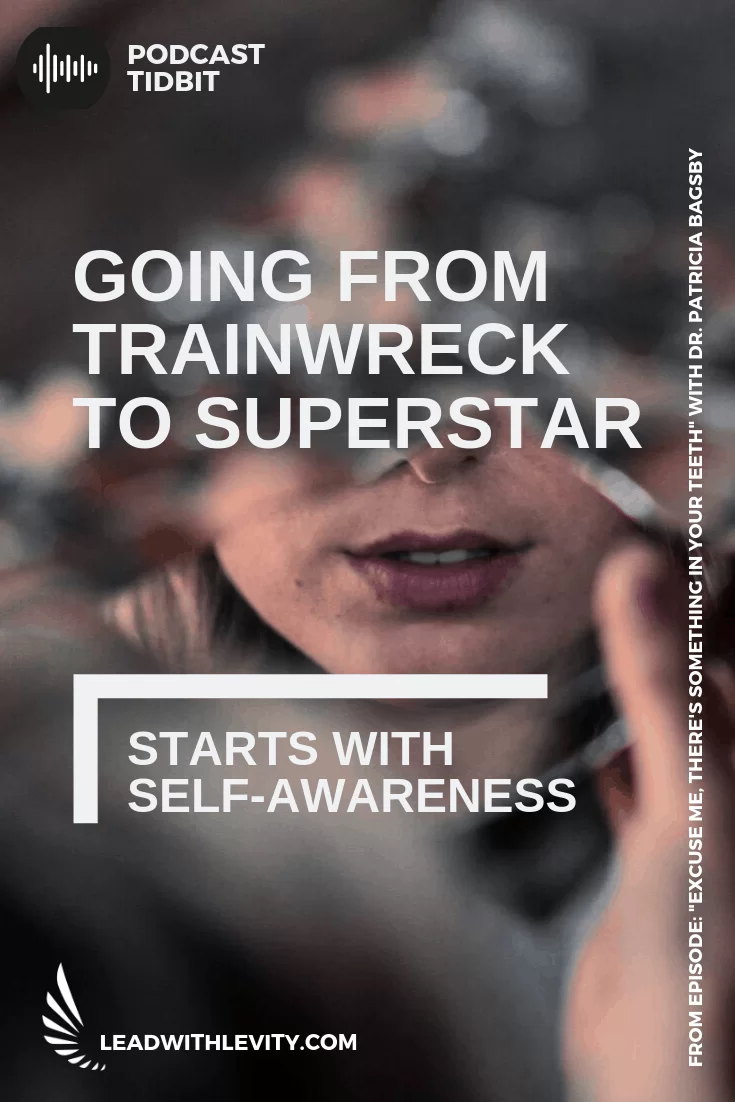Imagine walking into any room, any meeting, or any event with the confidence to spark engaging, meaningful conversations. No awkward pauses, no miscommunications—just authentic, impactful connections. Sounds like a superpower, doesn’t it?
In this week’s episode of Lead with Levity, we dive into the art of communication with Debra Roberts, a licensed clinical social worker, conversation expert, and author of The Relationship Protocol. Debra shares her insights on how to have courageous conversations, build trust, and navigate even the most challenging interactions.
The Foundation of Great Conversations
According to Debra, every conversation is an opportunity to connect, but the key lies in turning towards the other person. This means being fully present, showing respect, and engaging with curiosity. Whether you’re talking to a colleague, friend, or family member, turning towards them creates a foundation for trust and understanding.
What It Means to Turn Towards:
- Acknowledge and Validate: Let the other person know you’re paying attention to them.
- Actively Listen: Be present, even if you don’t agree with or like what’s being said.
- Remove Distractions: Put down your phone and focus on the conversation.
- Be Curious: Approach the interaction with an open mind and a desire to understand the other person’s perspective.


Breaking Through Communication Challenges
We’ve all experienced those moments where conversations just don’t flow. Maybe it’s a personality clash or a miscommunication. Debra emphasizes the importance of stopping the action when things feel off. A simple acknowledgment like, “We both want a good outcome here. Let’s reset and figure out what’s going on,” can help steer the conversation back on track.
How to Handle Difficult Conversations:
- Clarify Intentions: Let the other person know what you’re trying to achieve and ask for their input.
- Don’t Personalize: If the interaction feels tense, remember that it’s not always about you. Be curious instead of defensive.
- Focus on Respect: Even when you don’t see eye to eye, show up respectfully and acknowledge the shared goal of resolving the issue.
The Relationship Protocol: A Practical Approach
Debra’s Relationship Protocol is a communication model designed to improve relationships in both personal and professional settings. At its core, it’s about two key elements:
- Commitment: Showing up in a way that demonstrates you value the relationship or interaction.
- Turning Towards: Engaging with the other person’s experience to build trust and connection.
These principles can be applied in any situation, whether you’re mediating conflict, fostering collaboration, or simply reconnecting with a colleague.
Common Conversation Mistakes (and How to Avoid Them)
Debra points out that one of the biggest communication pitfalls is making assumptions or being unprepared. If a conversation is important, take a moment to plan:
- Set Your Intention: What do you want to achieve from the conversation?
- Think About the Other Person: How do you want them to feel after the interaction?
- Prepare Key Points: Consider a few things you’d like to communicate clearly.
By approaching conversations with forethought, you can avoid missteps like speaking out of turn or failing to consider the other person’s perspective.
Rebuilding Connections Post-Pandemic
As people return to the office and rebuild in-person relationships, many are grappling with the awkwardness of re-establishing connections. Debra advises focusing on authenticity and curiosity. Start conversations by acknowledging the shared experience of being back together and show genuine interest in the other person. Simple questions like, “What’s been keeping you inspired lately?” can open the door to deeper, more engaging interactions.
Cultivating a Positive Inner Dialogue
Debra’s approach to communication isn’t just outward-facing—it also starts with how we talk to ourselves. Negative self-talk can cloud your mindset and impact how you engage with others. Instead, she recommends treating yourself with the same kindness and respect you’d offer a close friend.
Tips for a Healthier Inner Dialogue:
- Be Curious About Your Emotions: If you notice a shift in your mood, ask yourself, “What just happened? What do I need right now?”
- Avoid Harsh Self-Criticism: Speak to yourself as you would to someone you care about.
- Find Humor in Your Humanity: When you make a mistake, laugh it off instead of beating yourself up.
Final Takeaway: Conversations as a Tool for Connection
At the heart of Debra’s message is a reminder that communication is about connection. Whether you’re navigating a tough conversation or simply trying to make a good impression, the goal is to foster understanding and build trust.
If you’re ready to improve your communication skills, explore Debra’s resources at therelationshipprotocol.com. From free downloads to online courses, her practical tools can help you approach your next conversation with confidence and clarity.
About Debra Roberts
In my book, The Relationship Protocol: How to Talk, Defuse and Build Healthier Relationships I teach people how to have effective and uncomplicated communication. The book describes the RP model in easy to read terms. The model itself is a common-sense approach that can benefit all relationships. And I know from many years of experience – if you give someone helpful, actionable tools for communicating, you’re not only going to improve their relationships, but you’ll grow their confidence and change their quality of life for the better.
Let’s transform how people think about communication! Learn how to resolve differences, speak thoughtfully and become stronger together.

About the Lead with Levity Podcast
The Lead with Levity podcast is a show for leaders who care deeply about what makes/breaks the employee experience. Our guests are dynamic researchers, practitioners, consultants, and business leaders. We cover foundational elements that are needed to avoid forcing the fun. We also invite lively managers who lead with levity to show us how it’s done. Thanks for joining us on this journey.








